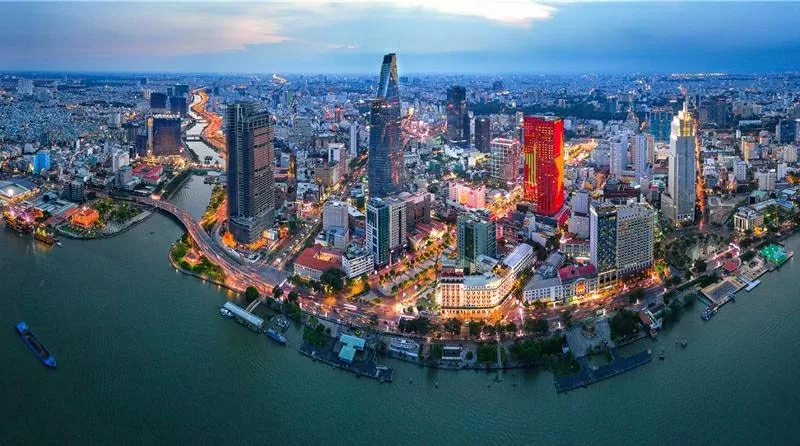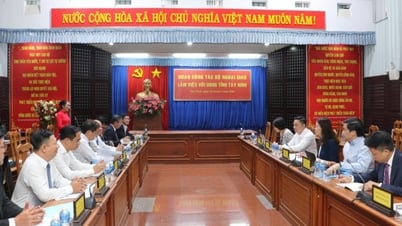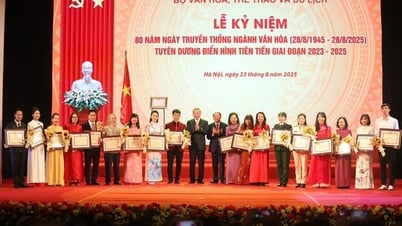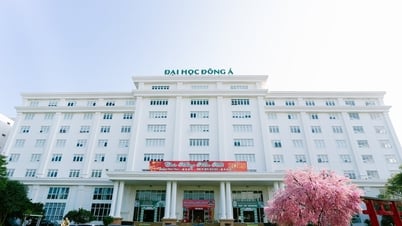 |
| Vietnam's private economic sector can absolutely become the main force, bringing the country into an era of independent, self-reliant and sustainable development. |
This important event is not only a political step forward, but also a strong institutional push, creating momentum for economic development towards sustainability, modernity and integration. To be effective, the Resolution needs to be soon concretized by a system of synchronous and feasible policies and laws, creating a favorable environment for innovation and development.
General Secretary To Lam affirmed, "Developing the private economy is a lever for a prosperous Vietnam". Resolution 68 is like a call to eliminate prejudices and renew thinking about the role of the private economy. Together with the state economic sector and the collective economy, as "the most important driving force", the private economy will contribute to building an independent, self-reliant economy with high resilience to global shocks.
Official statistics show that there are currently more than 940,000 enterprises and 5 million private business households operating in Vietnam, contributing about 50% of GDP, creating jobs for 82% of the workforce, and contributing more than 30% of total budget revenue. This sector is not only a growth engine but also a center of innovation and digital transformation - key elements of the modern economy.
However, the current private economic picture is not entirely bright. Most enterprises are still micro, small and medium-sized, with limited access to capital, technology, land and high-quality human resources... Resolution 68 frankly points out the barriers and clarifies the prerequisites for substantive change, from thinking, awareness, strategic vision, legal institutions to shortcomings in leadership, direction, freedom of business, high business costs...
To realize the development aspiration, the Resolution sets a target that by 2030, Vietnam will have two million private enterprises, with 20 enterprises per thousand people; at least 20 enterprises are capable of participating in the global value chain; this sector contributes 55-58% of GDP and solves up to 85% of the labor force. Furthermore, by 2045, the goal is to have at least three million private enterprises, contributing over 60% of GDP, a leap in both quantity and quality.
The figures clearly demonstrate the aspiration that the private economy must rise up to become a leading force, capable of competing internationally and playing a central role in the national development strategy.
At the ongoing 9th Session of the 15th National Assembly, the spirit of Resolution 68 continues to be strongly conveyed. Delegates agreed on the need to quickly institutionalize the contents of the resolution into specific policies, legalize tax, investment, science and technology incentives, ensure freedom of business and not criminalize purely economic acts... These are fundamental changes to create a transparent and fair legal environment where private enterprises can confidently invest and innovate.
Resolution 68-NQ/TW shows that it is not only a political document, but also a shift in thinking and action, demonstrating the determination to create a strategic breakthrough for the economy.
With a clear vision, strong institutional support and renewed confidence, Vietnam's private economic sector can absolutely become the main force, leading the country into an era of independent, self-reliant and sustainable development.
Source: https://baoquocte.vn/xung-luc-moi-cho-kinh-te-tu-nhan-314432.html





![[Photo] General Secretary To Lam attends the 80th Anniversary of the Cultural Sector's Traditional Day](https://vphoto.vietnam.vn/thumb/1200x675/vietnam/resource/IMAGE/2025/8/23/7a88e6b58502490aa153adf8f0eec2b2)





























































































Comment (0)